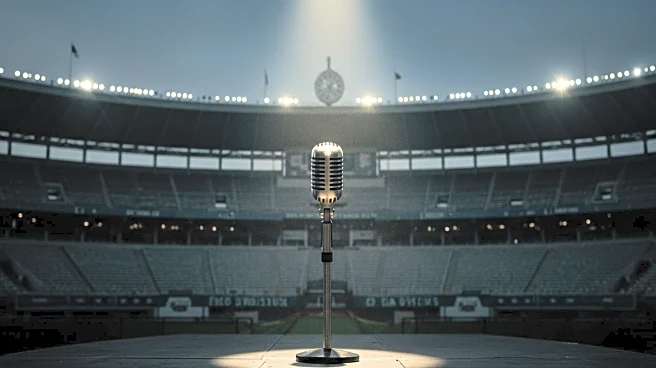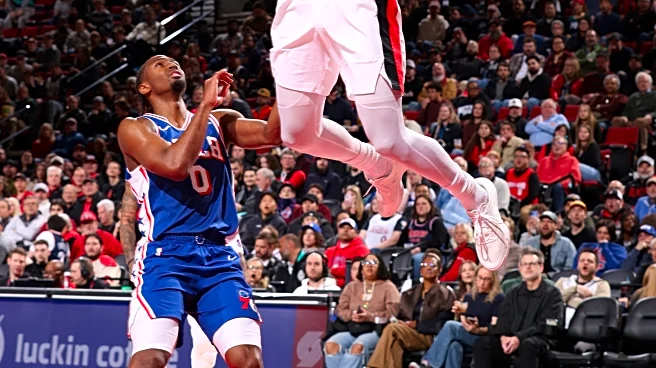What's Happening?
On August 15, 1965, The Beatles performed a historic concert at Shea Stadium in New York, marking a significant moment in rock-and-roll history. The event drew an unprecedented crowd of 55,600 fans, setting a new standard for live music performances. The concert was attended by notable figures such as Mick Jagger, Keith Richards, and Marvin Gaye, and featured opening acts including Brenda Holloway. The Beatles' performance was characterized by overwhelming fan enthusiasm, with the crowd's noise often drowning out the music. This concert was a pivotal moment in the band's career, showcasing their ability to fill large venues and influence future live music events.
Why It's Important?
The Beatles' Shea Stadium concert was a groundbreaking event that transformed the landscape of live music performances. It demonstrated the potential for rock-and-roll bands to fill large stadiums, paving the way for future artists to perform in similar venues. This shift has had lasting impacts on the music industry, influencing how concerts are organized and experienced today. The event also highlighted the cultural phenomenon of Beatlemania, reflecting the band's immense popularity and influence during the 1960s. The concert's success underscored the commercial viability of large-scale music events, contributing to the evolution of the live music industry.
What's Next?
The legacy of The Beatles' Shea Stadium concert continues to influence the music industry, with modern artists regularly performing in large stadiums. The concert set a precedent for future live events, encouraging advancements in sound technology and stage design to accommodate large audiences. As the music industry evolves, the impact of this historic concert remains evident in the way live performances are structured and marketed. The anniversary of the concert serves as a reminder of The Beatles' enduring influence and the transformative power of live music.
Beyond the Headlines
The Shea Stadium concert not only marked a milestone in music history but also reflected broader cultural shifts of the 1960s. It showcased the growing influence of youth culture and the power of music as a unifying force. The event highlighted the changing dynamics of celebrity and fan interactions, with The Beatles' ability to draw massive crowds symbolizing their global appeal. The concert also underscored the role of media in shaping public perception and the commercialization of music, setting the stage for future developments in the entertainment industry.










